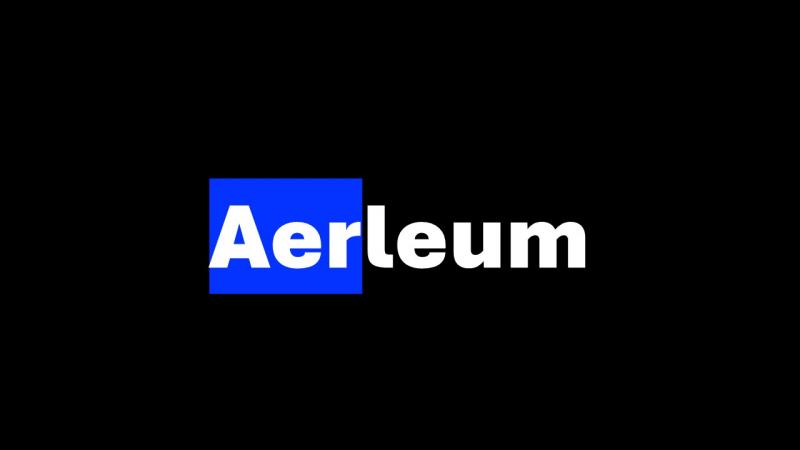SIGMA : Signatures vibrationnelles pour l'Identification de Gaz : Modélisation et Analyse // SIGMA : Spectral Identification of Gases by Modeling and Analysis
|
ABG-132860
ADUM-66930 |
Sujet de Thèse | |
| 11/07/2025 |
Université de Pau et des Pays de l'Adour
Pau - Nouvelle Aquitaine - France
SIGMA : Signatures vibrationnelles pour l'Identification de Gaz : Modélisation et Analyse // SIGMA : Spectral Identification of Gases by Modeling and Analysis
- Chimie
Caractérisation, Chimie-Physique, Modelisation, Capteurs
Caracterization, Physical-Chemistry, Modelling, Sensors
Caracterization, Physical-Chemistry, Modelling, Sensors
Description du sujet
Ce projet de doctorat porte sur le développement d'un capteur optique de nouvelle génération pour la détection moléculaire en temps réel, basé sur des techniques avancées de spectroscopie vibrationnelle (IR, UV-Vis, Raman). L'objectif est d'améliorer un prototype industriel existant en augmentant sa sensibilité, en élargissant sa gamme spectrale et en renforçant sa capacité à détecter des composants à l'état de traces dans des mélanges complexes. Le projet combine spectroscopie expérimentale, modélisation chimique quantique et analyse de données assistée par intelligence artificielle afin de permettre une attribution et une interprétation spectrales précises. Une attention particulière sera portée au traitement des signaux chevauchants, aux effets de pression et à la déconvolution automatique des spectres encombrés. Cette recherche interdisciplinaire sera menée en collaboration avec des partenaires académiques et industriels et bénéficiera des avancées récentes en spectroscopie vibrationnelle et en chimie théorique. L'objectif final est de développer une plateforme de capteur intelligente, robuste, adaptable à divers environnements et prête pour une mise en œuvre industrielle.
------------------------------------------------------------------------------------------------------------------------------------------------------------------------
------------------------------------------------------------------------------------------------------------------------------------------------------------------------
This PhD project focuses on the development of a next-generation optical sensor for real-time molecular detection using advanced vibrational spectroscopy (IR, UV-Vis, Raman). The goal is to improve an existing industrial prototype by enhancing its sensitivity, expanding its spectral range, and increasing its ability to detect trace-level components in complex mixtures. The project combines experimental spectroscopy with quantum chemical modeling and AI-driven data analysis to enable precise spectral assignment and interpretation. Special attention will be given to the treatment of overlapping signals, pressure effects, and automatic deconvolution of congested spectra. This interdisciplinary research will be conducted in collaboration with academic and industrial partners and will benefit from recent advances in vibrational spectroscopy and computational chemistry. The final objective is to develop a robust, intelligent sensor platform adaptable to various environments and ready for industrial deployment.
------------------------------------------------------------------------------------------------------------------------------------------------------------------------
------------------------------------------------------------------------------------------------------------------------------------------------------------------------
Début de la thèse : 01/10/2025
------------------------------------------------------------------------------------------------------------------------------------------------------------------------
------------------------------------------------------------------------------------------------------------------------------------------------------------------------
This PhD project focuses on the development of a next-generation optical sensor for real-time molecular detection using advanced vibrational spectroscopy (IR, UV-Vis, Raman). The goal is to improve an existing industrial prototype by enhancing its sensitivity, expanding its spectral range, and increasing its ability to detect trace-level components in complex mixtures. The project combines experimental spectroscopy with quantum chemical modeling and AI-driven data analysis to enable precise spectral assignment and interpretation. Special attention will be given to the treatment of overlapping signals, pressure effects, and automatic deconvolution of congested spectra. This interdisciplinary research will be conducted in collaboration with academic and industrial partners and will benefit from recent advances in vibrational spectroscopy and computational chemistry. The final objective is to develop a robust, intelligent sensor platform adaptable to various environments and ready for industrial deployment.
------------------------------------------------------------------------------------------------------------------------------------------------------------------------
------------------------------------------------------------------------------------------------------------------------------------------------------------------------
Début de la thèse : 01/10/2025
Nature du financement
Précisions sur le financement
Financement d'une collectivité locale ou territoriale
Présentation établissement et labo d'accueil
Université de Pau et des Pays de l'Adour
Etablissement délivrant le doctorat
Université de Pau et des Pays de l'Adour
Ecole doctorale
211 Sciences Exactes et leurs Applications
Profil du candidat
Le candidat idéal devra être titulaire d'un Master (équivalent à un Master 2 en France) en Chimie, Sciences des Matériaux ou Physique-Chimie, avec une solide formation en chimie computationnelle. Un intérêt marqué pour travailler dans un environnement multidisciplinaire — à l'interface entre le milieu académique et industriel, et impliquant des collaborations nationales et internationales — est indispensable. La maîtrise de l'anglais et de bonnes compétences en informatique (par exemple, programmation en Python, utilisation de ressources de calcul haute performance) sont requises. Une expérience préalable en chimie quantique, modélisation moléculaire ou développement de codes scientifiques serait un atout.
The ideal applicant will hold a Master's degree (equivalent to a Master 2 in France) in Chemistry, Materials Science, or Chemical Physics, with a solid foundation in computational chemistry. A strong interest in working within a multidisciplinary environment—at the crossroads of academia and industry, and involving both national and international collaborations—is essential. Proficiency in English and good computational skills (e.g., Python programming, use of high-performance computing resources) are required. Prior experience in quantum chemistry, molecular modeling, or scientific code development would be considered an asset.
The ideal applicant will hold a Master's degree (equivalent to a Master 2 in France) in Chemistry, Materials Science, or Chemical Physics, with a solid foundation in computational chemistry. A strong interest in working within a multidisciplinary environment—at the crossroads of academia and industry, and involving both national and international collaborations—is essential. Proficiency in English and good computational skills (e.g., Python programming, use of high-performance computing resources) are required. Prior experience in quantum chemistry, molecular modeling, or scientific code development would be considered an asset.
31/08/2025
Postuler
Fermer
Vous avez déjà un compte ?
Nouvel utilisateur ?
Besoin d'informations sur l'ABG ?
Vous souhaitez recevoir nos infolettres ?
Découvrez nos adhérents
 Tecknowmetrix
Tecknowmetrix  ADEME
ADEME  Généthon
Généthon  MabDesign
MabDesign  Ifremer
Ifremer  MabDesign
MabDesign  Institut Sup'biotech de Paris
Institut Sup'biotech de Paris  ONERA - The French Aerospace Lab
ONERA - The French Aerospace Lab  PhDOOC
PhDOOC  Laboratoire National de Métrologie et d'Essais - LNE
Laboratoire National de Métrologie et d'Essais - LNE  ANRT
ANRT  TotalEnergies
TotalEnergies  SUEZ
SUEZ  Nokia Bell Labs France
Nokia Bell Labs France  CESI
CESI  ASNR - Autorité de sûreté nucléaire et de radioprotection - Siège
ASNR - Autorité de sûreté nucléaire et de radioprotection - Siège  Aérocentre, Pôle d'excellence régional
Aérocentre, Pôle d'excellence régional  Groupe AFNOR - Association française de normalisation
Groupe AFNOR - Association française de normalisation  CASDEN
CASDEN


